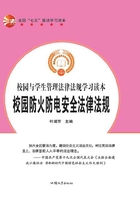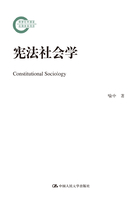Ath. And have we not heard of Iccus of Tarentum, who, with a view tothe Olympic and other contests, in his zeal for his art, ind alsobecause he was of a manly and temperate disposition, never had anyconnection with a woman or a youth during the whole time of histraining? And the same is said of Crison and Astylus and Diopompus andmany others; and yet, Cleinias, they were far worse educated intheir minds than your and my citizens, and in their bodies far morelusty.
Cle. No doubt this fact has been often affirmed positively by theancients of these athletes.
Ath. And had they; courage to abstain from what is ordinarillydeemed a pleasure for the sake of a victory in wrestling, running, andthe like; and shall our young men be incapable of a similarendurance for the sake of a much nobler victory, which is thenoblest of all, as from their youth upwards we will tell them,charming them, as we hope, into the belief of this by tales andsayings and songs?
Cle. Of what victory are you speaking?
Ath. Of the victory over pleasure, which if they win, they will livehappily; or if they are conquered, the reverse of happily. And,further, may we not suppose that the fear of impiety will enablethem to master that which other inferior people have mastered?
Cle. I dare say.
Ath. And since we have reached this point in our legislation, andhave fallen into a difficulty by reason of the vices of mankind, Iaffirm that our ordinance should simply run in the following terms:
Our citizens ought not to fall below the nature of birds and beasts ingeneral, who are born in great multitudes, and yet remain until theage for procreation virgin and unmarried, but when they have reachedthe proper time of life are coupled, male and female, and lovinglypair together, and live the rest of their lives in holiness andinnocence, abiding firmly in their original compact:-surely, we willsay to them, you should be better than the animals. But if they arecorrupted by the other Hellenes and the common practice of barbarians,and they see with their eyes and hear with their ears of the so-calledfree love everywhere prevailing among them, and they themselves arenot able to get the better of the temptation, the guardians of thelaw, exercising the functions of lawgivers, shall devise a secondlaw against them.
Cle. And what law would you advise them to pass if this one failed?
Ath. Clearly, Cleinias, the one which would naturally follow.
Cle. What is that?
Ath. Our citizens should not allow pleasures to strengthen withindulgence, but should by toil divert the aliment and exuberance ofthem into other parts of the body; and this will happen if noimmodesty be allowed in the practice of love. Then they will beashamed of frequent intercourse, and they will find pleasure, ifseldom enjoyed, to be a less imperious mistress. They should not befound out doing anything of the sort. Concealment shall be honourable,and sanctioned by custom and made law by unwritten prescription; onthe other hand, to be detected shall be esteemed dishonourable, butnot, to abstain wholly. In this way there will be a second legalstandard of honourable and dishonourable, involving a second notion ofright. Three principles will comprehend all those corrupt natures whomwe call inferior to themselves, and who form but one dass, and willcompel them not to transgress.
Cle. What are they?
Ath. The principle of piety, the love of honour, and the desire ofbeauty, not in the body but in the soul. These are, perhaps,romantic aspirations; but they are the noblest of aspirations, if theycould only be realized in all states, and, God willing, in thematter of love we may be able to enforce one of two things-either thatno one shall venture to touch any person of the freeborn or nobleclass except his wedded wife, or sow the unconsecrated and bastardseed among harlots, or in barren and unnatural lusts; or at least wemay abolish altogether the connection of men with men; and as towomen, if any man has to do with any but those who come into his houseduly married by sacred rites, whether they be bought or acquired inany other way, and he offends publicly in the face of all mankind,we shall be right in enacting that he be deprived of civic honours andprivileges, and be deemed to be, as he truly is, a stranger. Letthis law, then, whether it is one, or ought rather to be called two,be laid down respecting love in general, and the intercourse of thesexes which arises out of the desires, whether rightly or wronglyindulged.
Meg. I, for my part, Stranger, would gladly receive this law.
Cleinias shall speak for himself, and tell you what is his opinion.
Cle. I will, Megillus, when an opportunity offers; at present, Ithink that we had better allow the Stranger to proceed with his laws.
Meg. Very good.
Ath. We had got about as far as the establishment of the commontables, which in most places would be difficult, but in Crete no onewould think of introducing any other custom. There might arise aquestion about the manner of them-whether they shall be such as theyare here in Crete, or such as they are in Lacedaemon,-or is there athird kind which may be better than either of them? The answer to thisquestion might be easily discovered, but the discovery would do nogreat good, for at present they are very well ordered.













